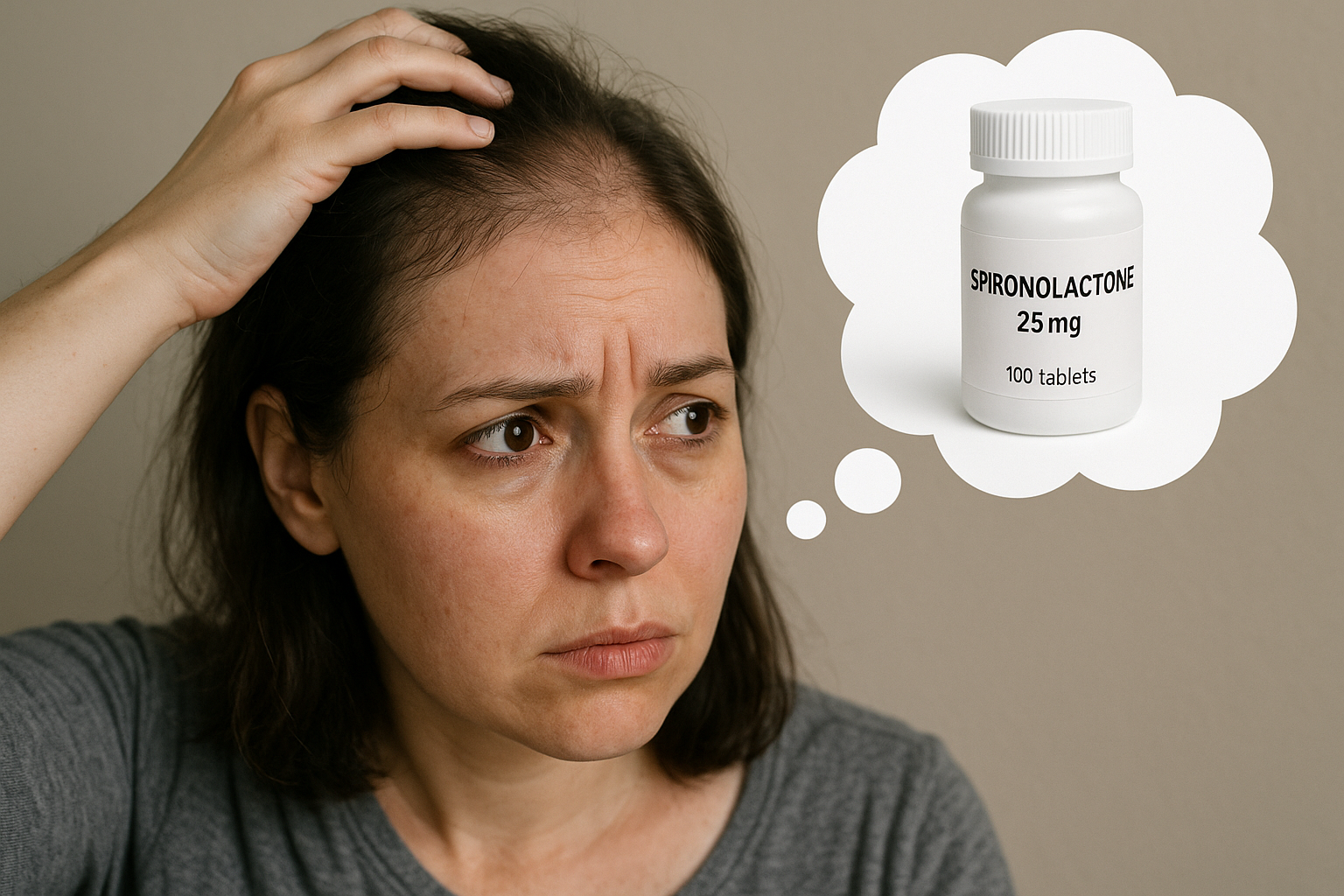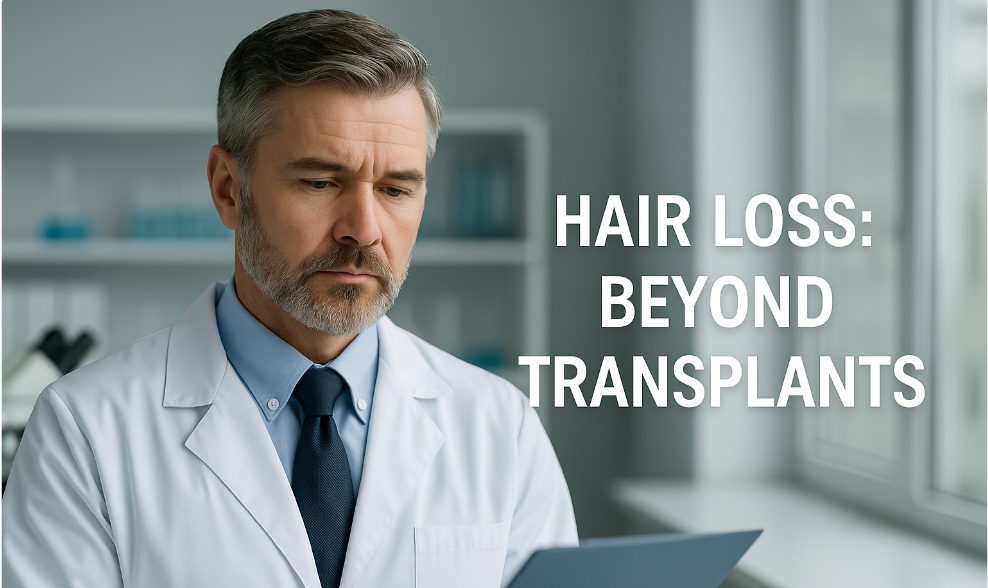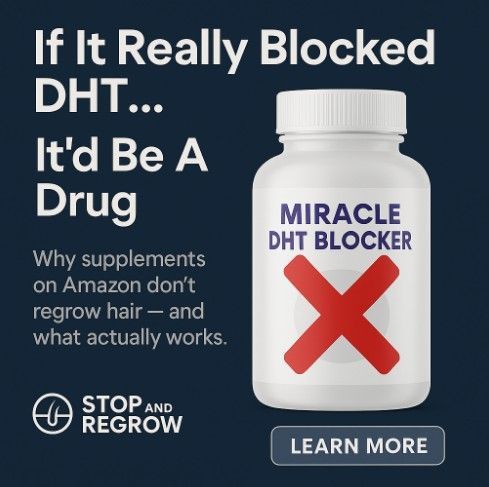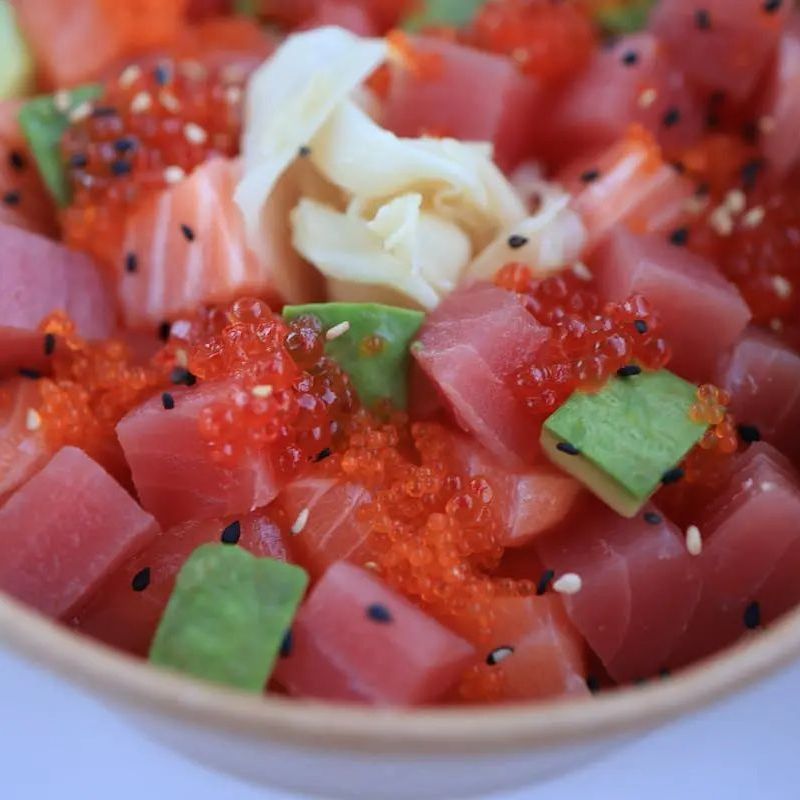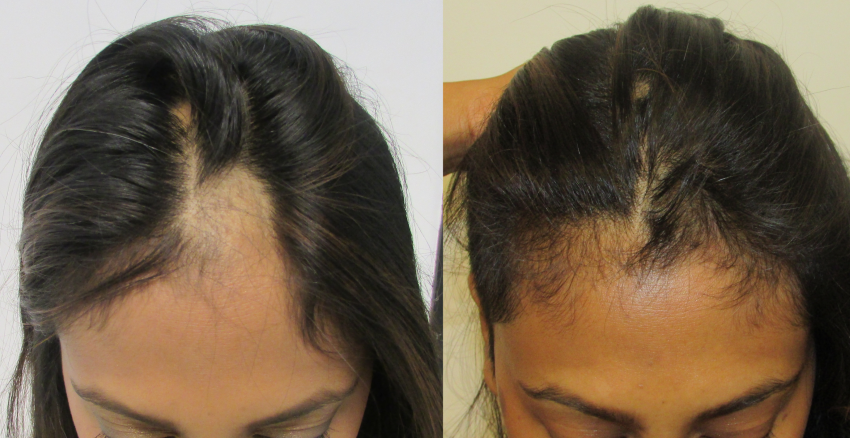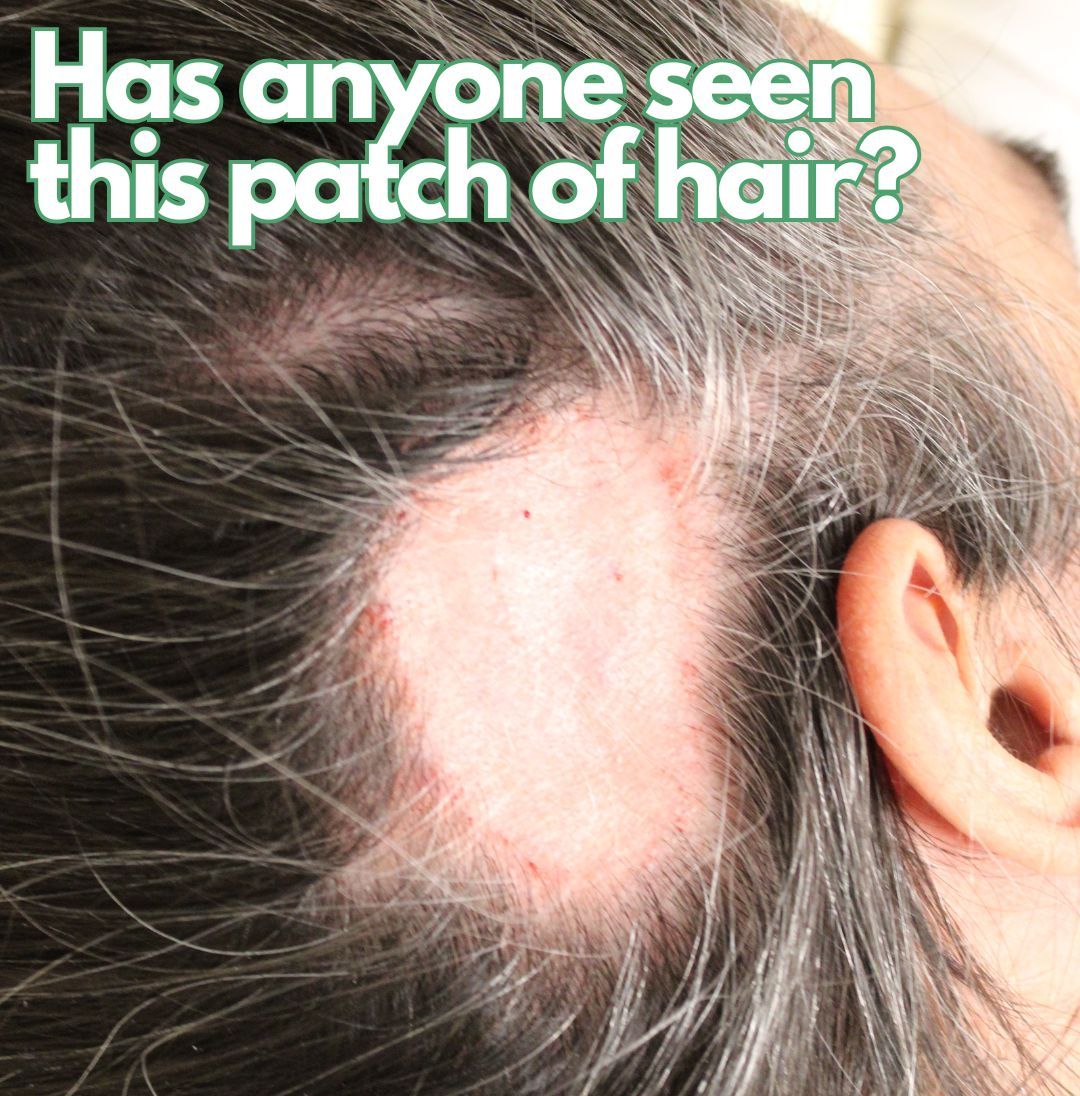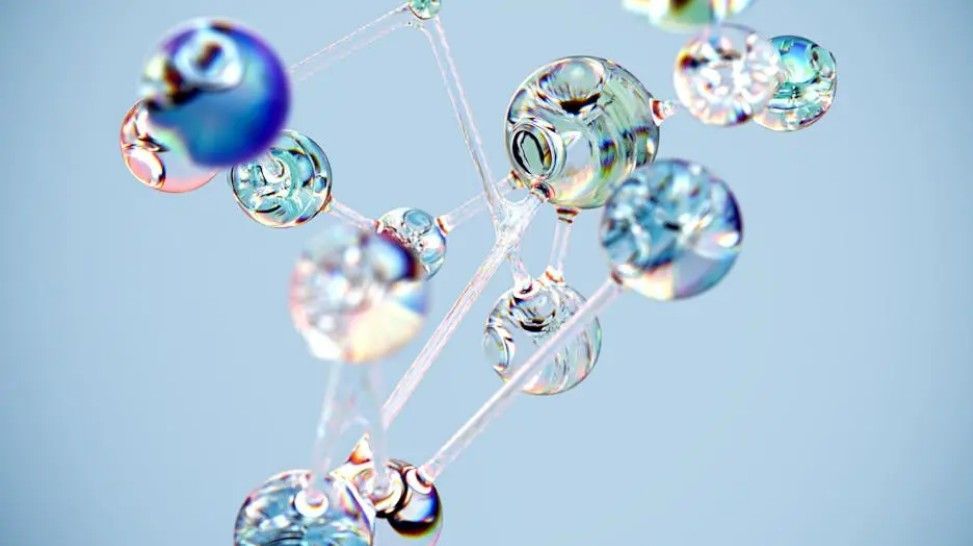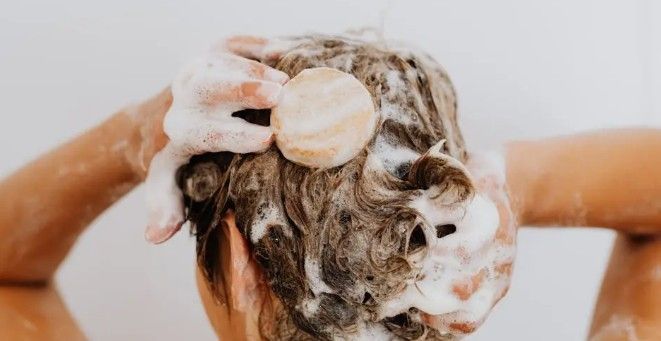It Turns Out Some Fats Are Necessary For Hair Regrowth
Fat Won't Make You Fat Either It Turns Out

Fat may be the most mis-understood macro-nutrient on the planet. Fat is feared more than almost any other food ingredient. Except maybe “chemicals”, but I’ll leave the discussion of chemicals for another time.
After protein, fat makes up most of nearly everything else in our bodies. Every one of the 100 trillion cells that make up us has a cell wall and all those 100 trillion cell walls are made of fat. Our brain is also made of fat and requires new supplies of fat on a daily basis to function correctly. Fat plays a very important role in maintaining memory and other parts of cognitive function. Fats also help with absorption of the micro-nutrients we need from the food we eat. Very important hormones including testosterone are made from fat.
As a Chef, I know that flavor comes from fat. However, we are conditioned by society to believe that fat is bad for us. What I have learned from Dr Nettles
however, is that most of the things we think we know about fat are in fact myths rather than fact.
So what in fact are fats?
Just like nearly everything else we put in our mouths, fats are made of C’s, H’s and O’s. It’s just the number of each that changes. And in particular between good and bad fats. You’ve heard of saturated and unsaturated fats right? Well saturated fats are the bad ones. What are they saturated with? Extra Hydrogens of course. I’ve written previously on the evils of extra hydrogen’s in our system here.
So what do fats do inside us?
There are three really important things in our body that are made of fat: cell walls, hormones and our brain.
Our Cells are made from Fat
Firstly, each of us are made from 100 trillion cells. That’s a lot. Each one of those cells, has a cell wall. Each one of those cell walls works to keep water in and out in a delicate balance. Each one of our cells will replace itself on a regular basis ranging from a few days to a several years depending on which cells they are. In general, the harder working the cells are, the more frequently they replace themselves. Some cells like those that make up your intestines and stomach turn over every couple of days and your skin about once a week. Other cells take months to replace themselves. And which cells do you think work better? The cells made out of good fats? or the cells made out of bad fat’s weighed down with extra hydrogen atoms?
Your Hormones are made from Fat
This one may surprise you, but your body literally makes testosterone from the fat, or cholesterol, you eat. Well what else would it be made from right? And taking this one step further, what is the difference between Testosterone and Estrogen molecularly? Primarily extra hydrogens. And now think back to what I said earlier about the difference between good fats and bad fats - extra hydrogens right! You can see where I’m leading you with this. If you don’t bring in the building blocks to make hormones you can’t. So make sure you get plenty of good fats in your diet – every day. You don’t only make hormones a few times a week.
Why are hormones important? Our hormones are what keep us alive. You have the most you will ever have in your early 20’s and then lose 3-4% a year until you don’t have enough left to keep you alive. Your hormones give you your energy, drive, metabolism, libido, confidence.
Your Brain is made from Fat
This is the reason so many of us take Omega 3-6-9 supplements to aid with mental function and help us come up with billion-dollar ideas. There is research happening in top medical institutes as we speak conducting trials to treat diseases like dementia, epilepsy and cancer with all protein and healthy fat diets (zero carbs).
One thing to note though is that all these trials and research are using fat from food sources – not supplements. You just can’t get the quantity you need from supplements. Think about it logically for a moment, those horse sized omega capsules that you are swallowing, are mostly gelatin with just a tiny amount of fat in the very middle. I learned from Doctor Nettles that his healthiest clients eat 2-3 avocados every day. That’s the equivalent of six tablespoons of avocado oil, in addition to the good fats they get elsewhere in their diet from nuts, seeds, fish and olive oil. Each one of your capsules contains about 5% of 1 tablespoon of oil.
Dr Nettles advice
– don’t spend extra money on the capsules and just drink your favorite oil straight from the bottle, or even better pour some in your shake or on your food. You can get some great tasting organic oils these days. I like to infuse mine with natural herbs and spices sometimes too.
So What Should I Worry About When It Comes To Fat?
The biggest thing to be aware of is that if you didn’t do the cooking, how can you know which type of fat is used? Some restaurants may use lower quality or saturated oils to keep their costs down. So my tips for how to stay on the healthy side of the fats you eat include:
- Cook at home. You can always subscribe to one of those meal prep services that deliver you the ingredients already prepared with instructions to cook and serve. Just make sure you pick the right oils to cook with and substitute healthy oil for any butter, lard or animal based fat.
- If you do have to buy prepackaged foods, read the labels
for the types of fats used. Look for unsaturated fat content vs saturated fat.
- If you are cooking at home, cook with unsaturated oils like avocado oil. I was surprised to learn that so many people aren’t aware of avocado oil, which unlike olive oil has a very high burn point so the molecular structure doesn’t change with cooking. You can even fry in it. Yes, that’s right, healthy fried food! If its full of healthy avocado oil, you can eat fried foods. Obviously, you still want to watch your carbohydrates intake, so I’d recommend fried fish rather than chips, but you can still enjoy that crispy crunchy oily tastiness and have it be good for you.
Don’t Worry About the Bad Fats
So last point for this article, don’t worry about the bad fats, focus on the good ones. As Doctor Nettles always likes to remind me, if you eat enough of the good fats, they will push down/clean out the bad fats in your system.
My parting thought for you: Don’t let misinformation shorten your life.
To good healthy and tasty food!
Chef Jay Lipnicki

